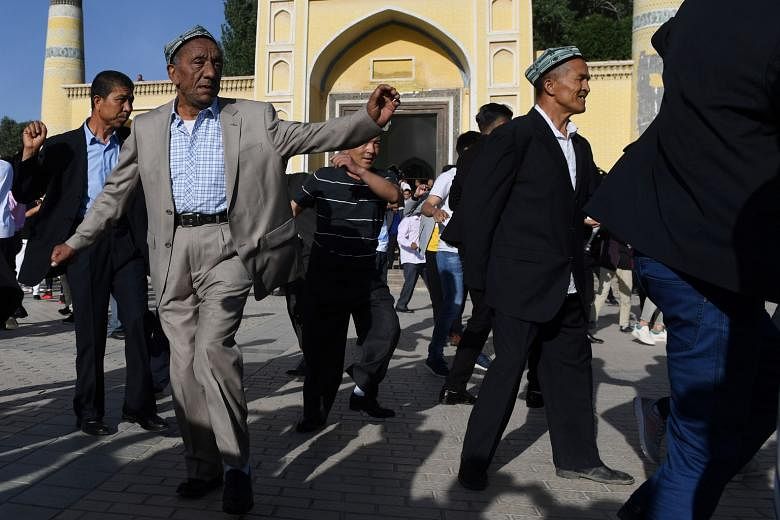On the occasion of the 70th anniversary of the People's Republic of China (PRC) on Oct 1, the party-state has much to celebrate: an unprecedented record of economic development, world-class education and technological innovation, an increasingly prominent position on the world stage. But even as the authorities go to extreme lengths to assure a triumphant birthday parade, the Chinese Communist Party (CCP) faces its most intense international criticism since 1989, when it killed hundreds of unarmed protesters in the heart of Beijing, at Tiananmen Square. Thirty years later, international concern is focused on China's peripheries: Xinjiang and Hong Kong.
Both are thorns in the CCP's side, as is Tibet, where a dispute over who will succeed the elderly Dalai Lama could reawaken mass dissent, and Taiwan, where popular support is rising for a president who challenges Beijing's view that the island is an integral part of China. Despite the CCP's claims, these challenges are not the doing of "hostile foreign forces", "separatists" or "thugs" stirring up trouble in these territories. Rather, they result from the fact that when the CCP came to power 70 years ago, it took over not a homogeneous China, but a sprawling empire with a variety of peoples.
Already a subscriber? Log in
Read the full story and more at $9.90/month
Get exclusive reports and insights with more than 500 subscriber-only articles every month
ST One Digital
$9.90/month
No contract
ST app access on 1 mobile device
Unlock these benefits
All subscriber-only content on ST app and straitstimes.com
Easy access any time via ST app on 1 mobile device
E-paper with 2-week archive so you won't miss out on content that matters to you

